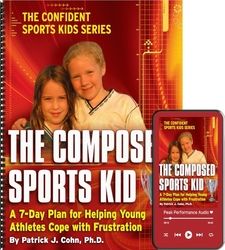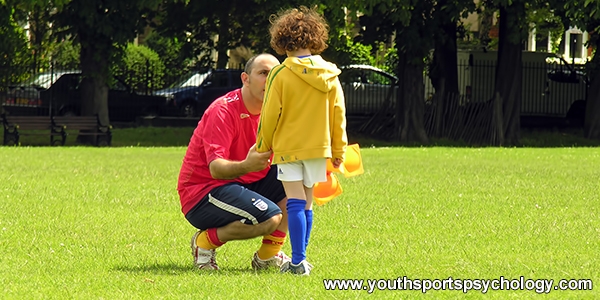Understanding Fight, Flight and Freeze
Learning about the nervous system can help parents and young athletes better understand some of the feelings they experience, especially before games and competitions.
“Our nervous system’s job is to protect us. Think about it as an early warning system, like an alarm system,” said Pomai Miyata, a sports performance consultant during an interview for our Ultimate Sports Parent podcast.
When the nervous system senses danger, it reacts and starts to do its job, activating the fight, flight or freeze response.
As cavemen, when danger was all around us, the nervous system would alert us that, for example, a tiger was in front of us. “We could fight or run away, or freeze. When we freeze, our body doesn’t work,” she explained.
Generally, the nervous system puts kids on alert before a game or competition, and they feel nervous. But that isn’t necessarily a bad thing, said Miyata. That nervous energy can boost kids’ focus, energy and strength.
Understand The Fight, Flight or Freeze Mentality
“When people go into competition, they might say ‘My stomach hurts, my legs feel like jelly, I’m not in control of my body.’ Parents should recognize that this is a normal response.”
Generally, when the game starts, the nervous feelings recede, she noted. However, sometimes athletes go into freeze mode. They might do this if they lose a ball while dribbling down the basketball court, for example.
“When that happens, athletes lose access to their muscle memory and things aren’t automatic.” That’s when they start to overthink. It’s difficult to get out of freeze mode, once they’re in it.
Parents and coaches can help kids avoid going into freeze mode by identifying, during practice, what makes them freeze up. This involves some trial-and-error and requires practice.
Kids need to identify their first signs of activating freeze mode. Let’s say, for example, a point guard worries about losing a ball early in the game. She needs to start calming down once these thoughts enter her mind and focus on staying in the moment.
“Being in the moment is important. The whole idea is the nervous system gets activated because you’re in the future or past, not the present moment,” said Miyata.
Listen to the Full Podcast:
Subscribe to our Ultimate Sports Parent Radio Show
Related Articles on Youth Sports:
- Communicating With Sports Kids During Car Rides
- When Athletes Play to Not Make Mistakes
- How to Help Athletes Who Stop Trying or Give Up
*Subscribe to The Sports Psychology Podcast on iTunes
*Subscribe to The Sports Psychology Podcast on Spotify
The Composed Sports Kid

“The Composed Sports Kid” audio and workbook digital download program for young athletes and their parents or coach helps kids cope with frustration and anger in sports. Help your sports kids learn how to manage expectations and let go of mistakes so they can keep their head in the game.
The Composed Sports Kid system is really two programs in one–one program to train parents and coaches how to help their kids practice composure, and one program that teaches young athletes–ages 6 to 13–how to improve composure, let go of mistakes quickly, have more self-acceptance, and thus enjoy sports more!

